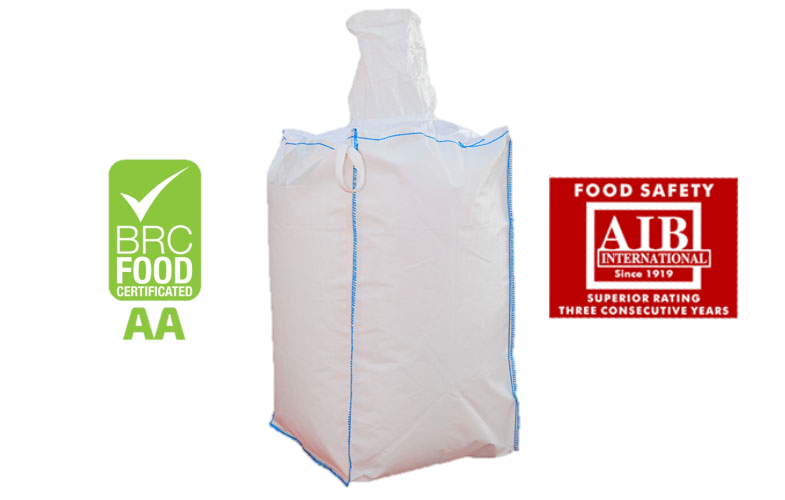Common Misconceptions in the procurement of Food Grade Bulk Bags (FIBC)
The packaging world is innovative & flexible and so is often changing with the likes of new government regulations for food safety, strict guidelines and third-party accreditations that manufacturers and retailers are required to follow. Naturally, there’s bound to be some confusion and misunderstandings, so in this article, we attempted to debunk some of the common misconceptions and myths surrounding food grade bulk bags.
Myth 1: You should look for only FDA approved bags
Fact: FDA approved bags do not exist
You will find a lot of food grade bulk bag suppliers claim their bags to be FDA approved, the truth is that FDA does not issue any kind of approval, accreditation, or certificate for FIBCs or FIBC liners. However, FDA does approve that only 100 percent virgin polypropylene resin should come in contact with food. So, when food grade FIBC manufacturers claim that their FIBCs are approved by the FDA, they may mean that the bags are made using 100 percent virgin polypropylene resin and hence as per the FDA standards the bags are appropriate for storing and transporting food.
Myth 2: Any type of FIBC bag can be used for storing food grade products if it uses a food grade liner
Fact: Both the FIBC bag and liner should be made of 100% virgin polypropylene resin if it is to be used for food grade products.
Not just the liner, but the FIBC bag that comes in contact with food grade products should be made of 100% virgin polypropylene resin. Use of such bags ensures that no recycled material is used in the manufacturing of the bag. This helps in reducing the chances of contamination.
Furthermore, manufacturing facilities for food grade FIBCs needs to follow strict norms to ensure the highest standards of quality. Manufacturers need to ensure that their food-grade bulk bags are produced in a BRC certified facility which has proper ventilation, facility for light table inspection, metal detection, and record keeping. Employees should wear a proper uniform and adhere to recommended hygiene standards. A HACCP (Hazard Analysis and Critical Control Points) program should also be followed.
Myth 3: GFSI accreditation is a must
Fact: GFSI does not offer but recognizes certain third-party accreditations and certifications
It is a myth that GFSI accreditation is a must for food-grade bulk bags. The fact is that GFSI neither has any policy for FIBC manufacturers or retailers nor it undertakes any accreditation or certification activities. The aim of GFSI (Global Food Safety) is to facilitate continuous betterment of food safety management systems which instills confidence in the delivery of safe food to consumers anywhere in the world.
Here are some third-party accreditations/food safety management schemes and certifications that the GFSI does recognize:
- Food Safety System Certification 22000 (FSSC)
- BRC – British Retail Consortium: BRC Global Standard for Packaging & Packaging Materials Issue 4
- International Featured Standards (IFS): IFS PAC secure, Version 1
- SQF – Safe Quality Food Institute: SQF Code 7th Edition; Level 2
Interested in finding our more about our Food Grade FIBC Bulk Bags? Get in touch at sales@rosenflex.com or on 01206 266850








